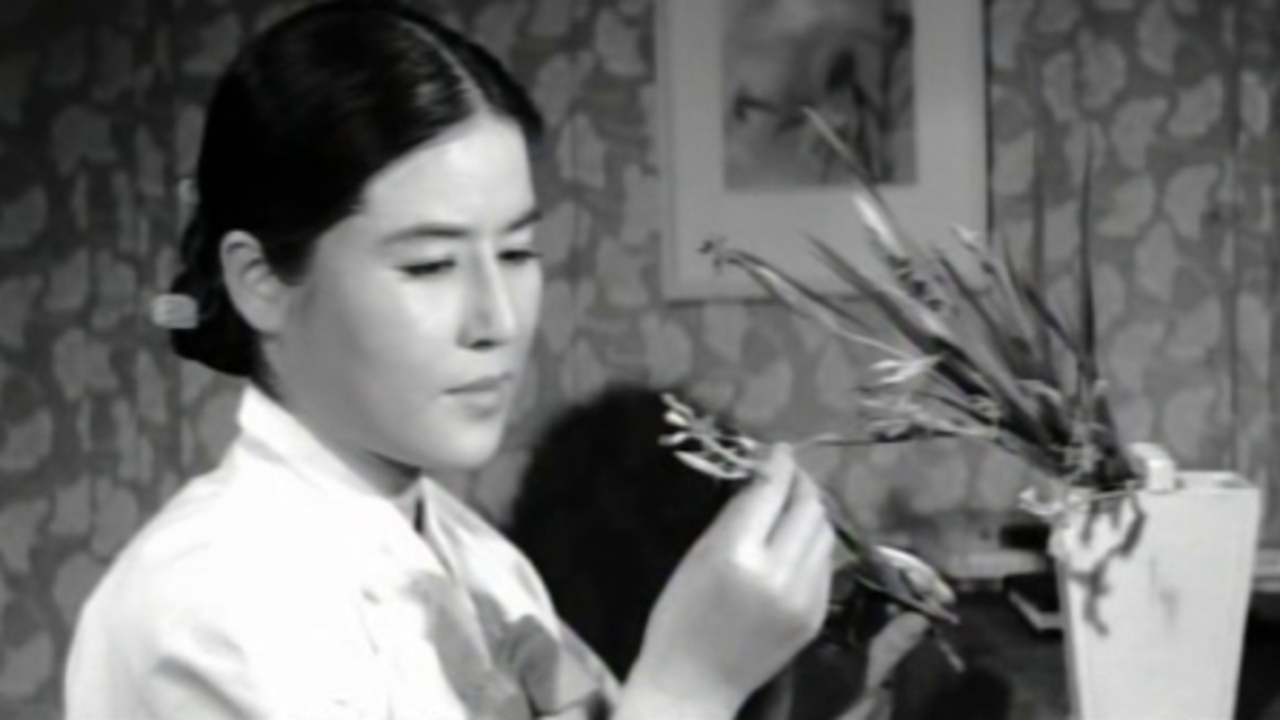With a quiet grace, and the kind of childlike innocence in its narration that lays bare the adult melancholy all around, Shin Sang-ok‘s My Mother and Her Guest (1961) sneaks up on you. It’s a far cry from the violent, Occupation-era love triangle of his A Flower In Hell (a previous Counter-Programming entry released just 3 years prior), though both star Choi Eun-hee.
In form and theme, My Mother and Her Guest is much closer to Hometown of the Heart, 1949’s star turn from Choi. The emphasis is on the struggles of widows and children without parents pushing up against society’s strictures, not amour fou, daytime noir, and deaths in the dirt. This is an understated film, set in a “widow house.” Its pall of sadness is quiet, its hopes are quiet, even its moments of levity are mostly quiet. The soundtrack — almost all Chopin, an interesting choice for a South Korean romance — underlines this at every turn. There’s something stately but ineffable about the whole affair. From the start, it’s clear that My Mother and Her Guest won’t end in blood, but it’s just as clear that things won’t resolve tidily in the classic Hollywood fashion.
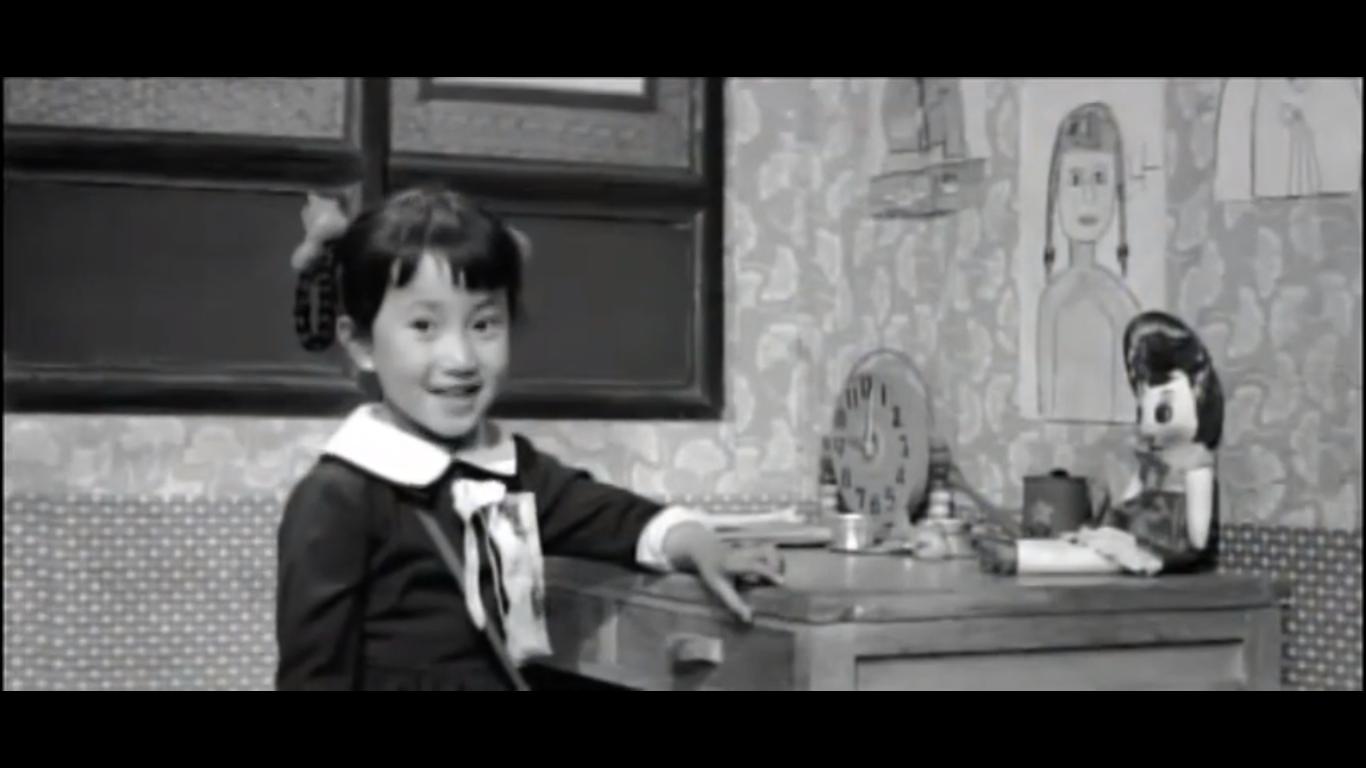
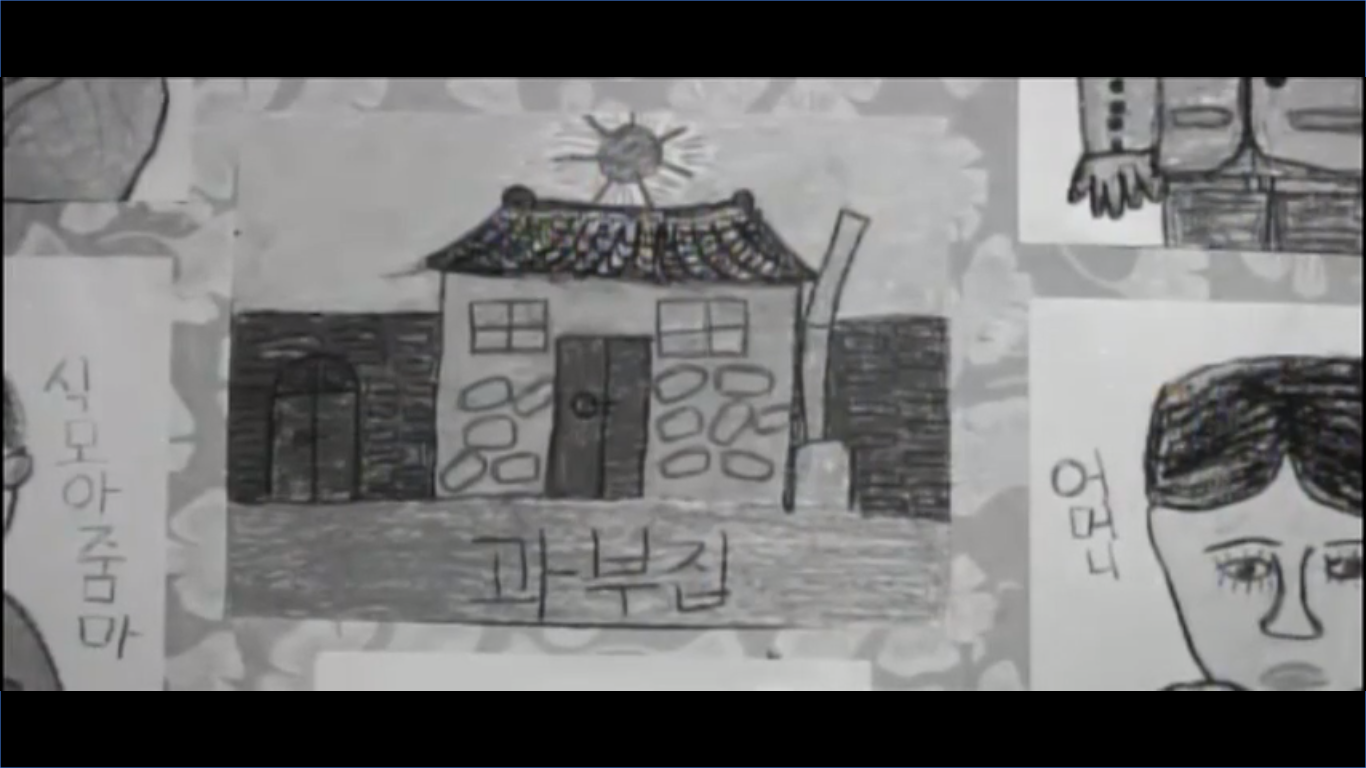 The narrative is guided by 6-year-old Ok-hee (Yeong-Seon Jeon). In voiceover, she introduces us to her family, and her village, via the illustrations of each which hang on her wall. Her severe grandmother (Eun-jin Han), a deaconess who scares everyone but Ok-hee; her mom (Choi), the prettiest woman in the world; and the kind maid (Geum-bong Do), who “works hard, eats well, and sleeps well.” These literal sketches are presented with touching grace notes. Ok-hee says doesn’t know what “a widow” is, exactly, but adds “since I’m a widow’s daughter, that means my mom is a widow.” At the close of her intros, Ok-hee turns and addresses the camera, excusing herself as she heads off to kindergarten. We are in a child’s world and a house full of women.
The narrative is guided by 6-year-old Ok-hee (Yeong-Seon Jeon). In voiceover, she introduces us to her family, and her village, via the illustrations of each which hang on her wall. Her severe grandmother (Eun-jin Han), a deaconess who scares everyone but Ok-hee; her mom (Choi), the prettiest woman in the world; and the kind maid (Geum-bong Do), who “works hard, eats well, and sleeps well.” These literal sketches are presented with touching grace notes. Ok-hee says doesn’t know what “a widow” is, exactly, but adds “since I’m a widow’s daughter, that means my mom is a widow.” At the close of her intros, Ok-hee turns and addresses the camera, excusing herself as she heads off to kindergarten. We are in a child’s world and a house full of women.
The arrival of Mr. Han (Kim Jin-kyu), an old friend of Ok-hee’s father, comes to stay, for reasons that are never really clarified. My Mother and Her Guest is less interested in plot mechanics than presenting relationships; the simple “guest” of the title will suffice. He and Ok-hee become fast friends and, with Han clearly filling a paternal hole in her heart, she sets out to play 6-year-old matchmaker:
Ok-hee gives a rose to her mother with a huge smile on her face and lies to get her to talk to Mr. Han. She doesn’t care about the expectations of being a widow or the social norms between men and women, she only wants both adults to be happy and start a family. She even tells Mr. Han that she wishes he was her father sometimes, and again the director is exposing the idea that if the world was as easy as a child would hope so, then everyone would get what they desire.
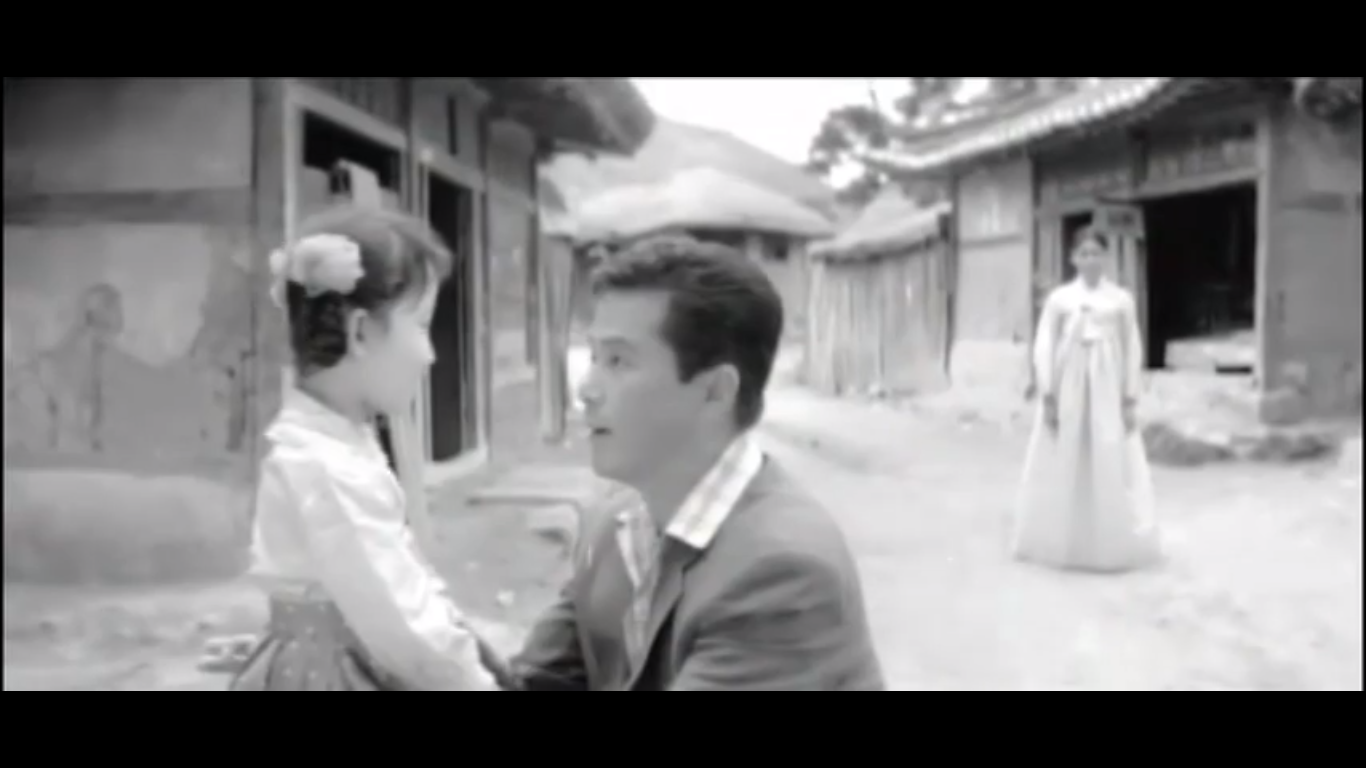 Of course, the world is not so easy. There are strictures against conversation outside the family, much less widows re-coupling. Combined with obligations to home and to her mother-in-law, we doubt the possibilities of the romance the film tenderly draws out. Much of My Mother and Her Guest carries the wistfulness of melodrama. The “will they or won’t they?” aspect is more or less cut off at the knees, which is the point. But Choi and Kim convey all their longing effectively, with surreptitious and fumbling attempts at quasi-courtship frequently made even sweeter by Ok-hee’s tendency to just blurt stuff out. There’s a selfishness and a tendency to color around the details to her would-be match-making, which is entirely appropriate to a 6-year-old girl trying to make sense of her world.
Of course, the world is not so easy. There are strictures against conversation outside the family, much less widows re-coupling. Combined with obligations to home and to her mother-in-law, we doubt the possibilities of the romance the film tenderly draws out. Much of My Mother and Her Guest carries the wistfulness of melodrama. The “will they or won’t they?” aspect is more or less cut off at the knees, which is the point. But Choi and Kim convey all their longing effectively, with surreptitious and fumbling attempts at quasi-courtship frequently made even sweeter by Ok-hee’s tendency to just blurt stuff out. There’s a selfishness and a tendency to color around the details to her would-be match-making, which is entirely appropriate to a 6-year-old girl trying to make sense of her world.
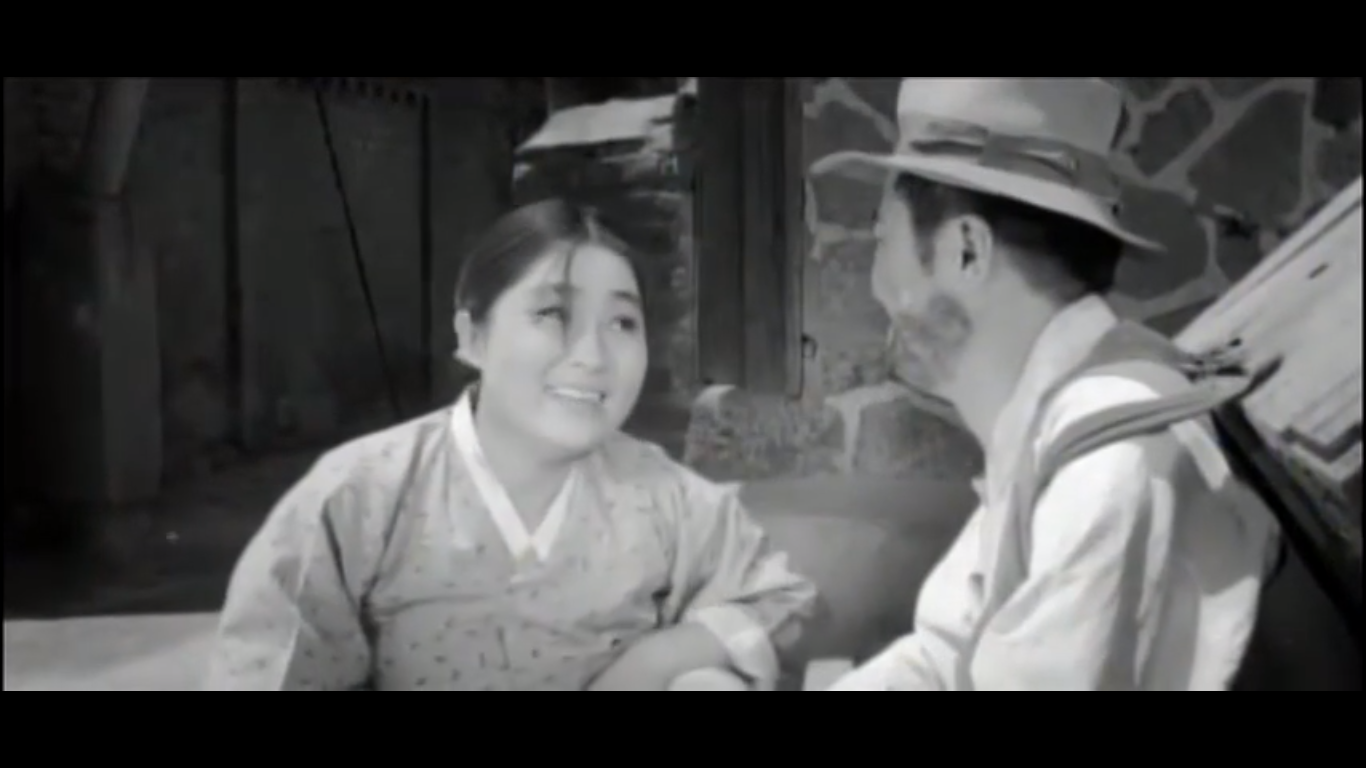 The only really happy romantic relationship in the small cast is the one that develops between the maid and the local egg vendor. Shin seems to imply that their particular place in the structure, widowed and working class, allows possibilities denied to more proper folks. (They are even implied to fool around just offscreen when everyone is out of the house, a pretty startling development in My Mother and Her Guest — I was not expecting maid/egg vendor sex.) It rings a bit simplistic, but from the very opening moments, the maid’s appetites are emphasized, and she’s “the happiest person in our family,” according to Ok-hee. So that’s nice.
The only really happy romantic relationship in the small cast is the one that develops between the maid and the local egg vendor. Shin seems to imply that their particular place in the structure, widowed and working class, allows possibilities denied to more proper folks. (They are even implied to fool around just offscreen when everyone is out of the house, a pretty startling development in My Mother and Her Guest — I was not expecting maid/egg vendor sex.) It rings a bit simplistic, but from the very opening moments, the maid’s appetites are emphasized, and she’s “the happiest person in our family,” according to Ok-hee. So that’s nice.
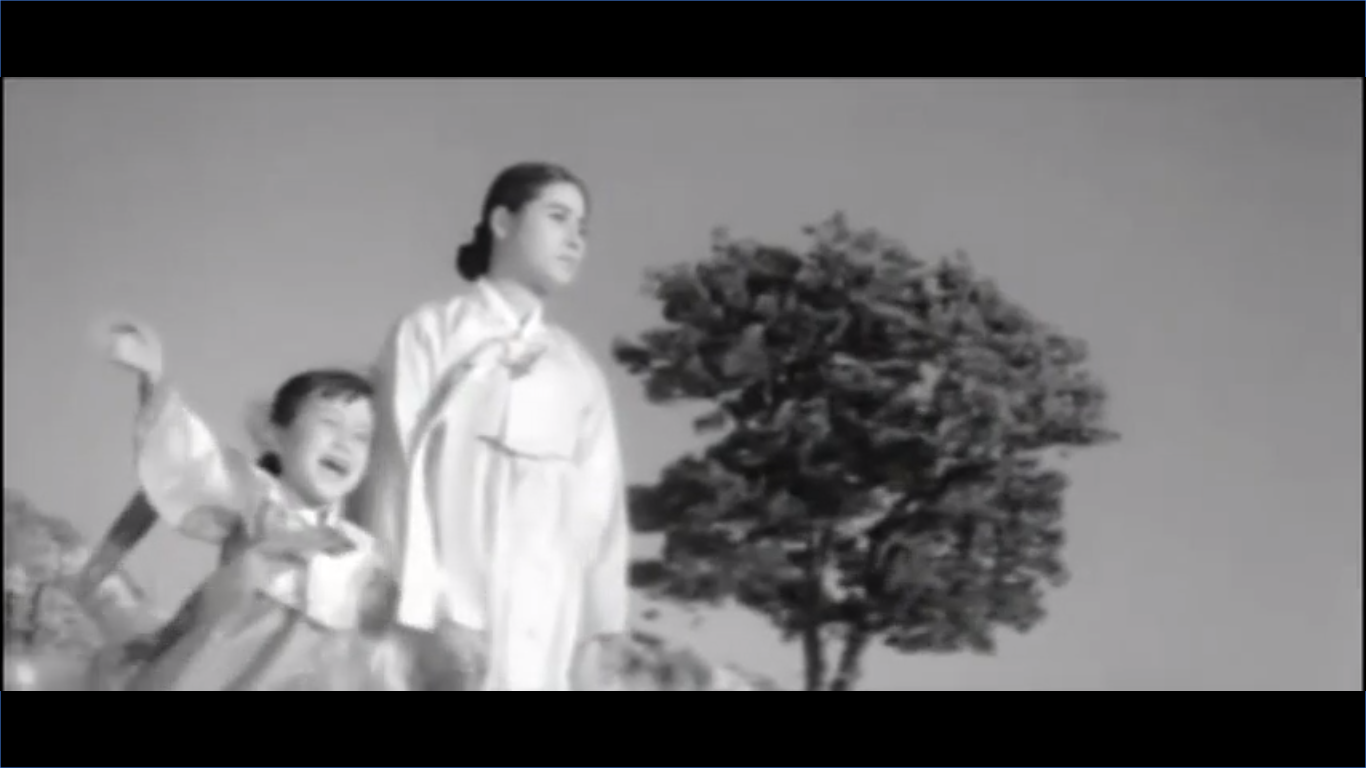 Still, as the title would have it, this is not their story. The main focus here is on an impossible romance, and the film manages to portray this without turning didactic. There’s very little anger in My Mother and Her Guest; just a lingering sense of what could’ve been, if the world were different than it is.
Still, as the title would have it, this is not their story. The main focus here is on an impossible romance, and the film manages to portray this without turning didactic. There’s very little anger in My Mother and Her Guest; just a lingering sense of what could’ve been, if the world were different than it is.
But as Mr. Han boards a train and heads back to the city after a season, it’s clear we’re not in that world. Choi and her daughter watch from the hill where he and the child had painted together on lazy afternoons, and Chopin — as Philip Gowman notes, not unlike Rachmaninoff in Brief Encounter 15 years prior — provides a final coda.
The mother will observe silently as Shin’s camera settles on a close-up of Choi. The child will wave enthusiastically. The train will depart.

